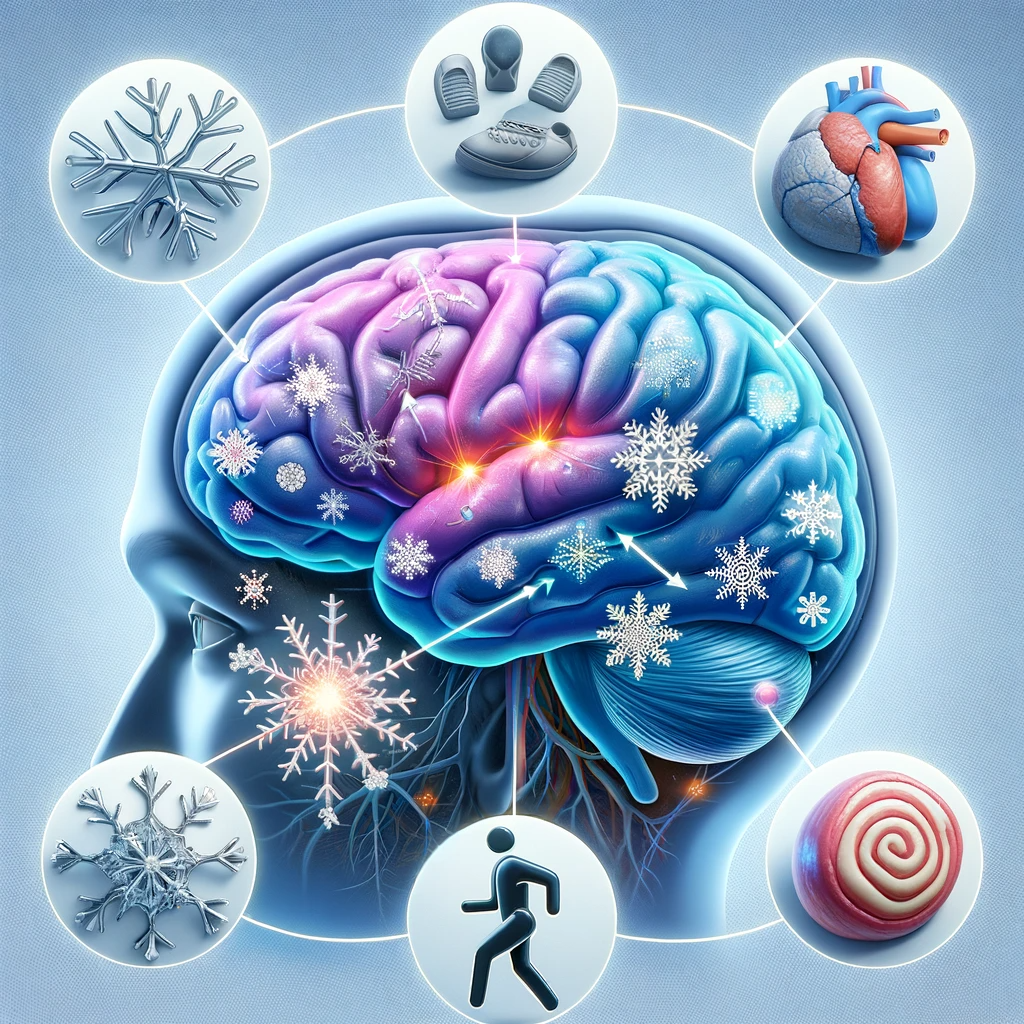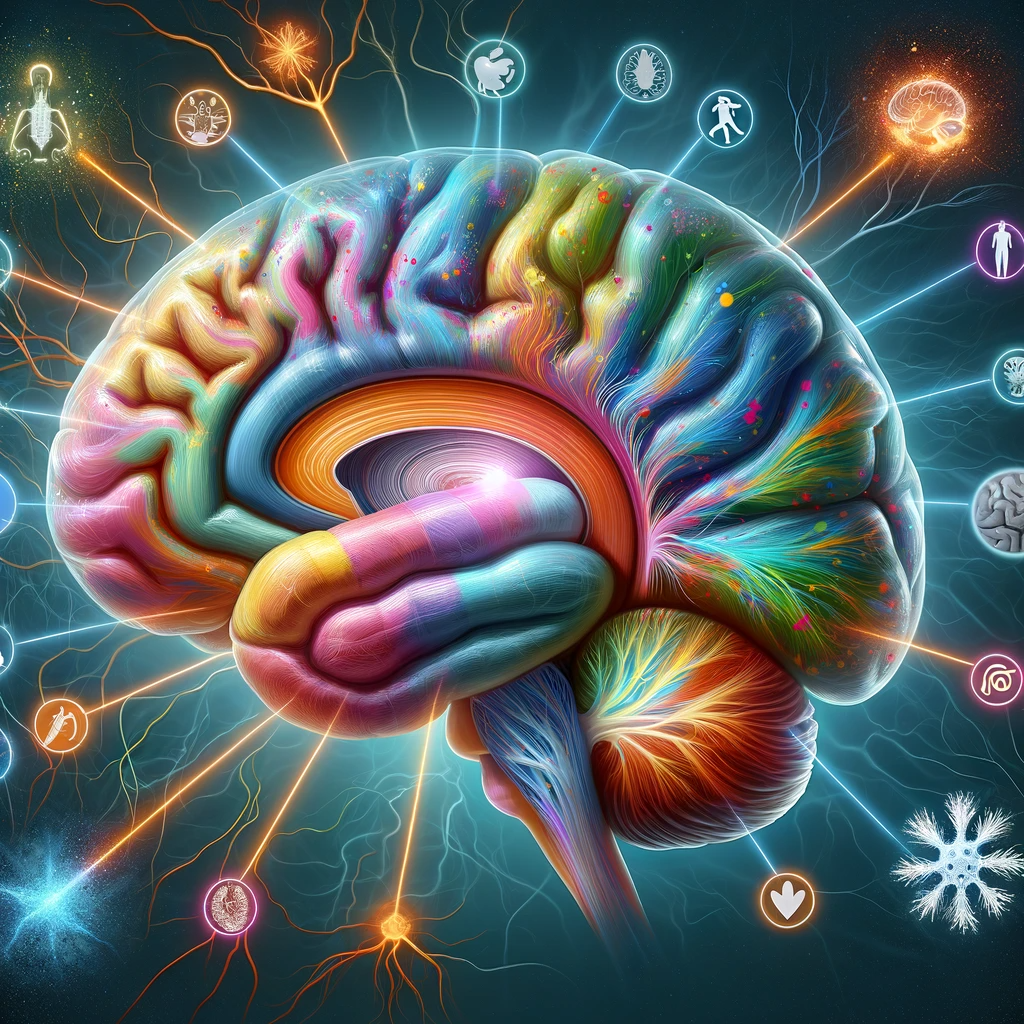Introduction
The human brain, a complex and enigmatic organ, houses various regions with specialized functions. One such intriguing area is the anterior mid-cingulate cortex (aMCC), a region that plays a pivotal role in bridging our cognitive processes with emotional experiences. This article delves into the multifaceted functions of the aMCC, shedding light on its significance in our daily lives and various mental health contexts.
Anatomy of the Anterior Mid-Cingulate Cortex
Nestled within the cerebral cortex, the aMCC is a crucial component of the limbic system, renowned for its involvement in emotional processing. It lies in proximity to the corpus callosum, linking it with other brain regions to regulate emotional and cognitive functions (Shackman et al., 2011). This intricate connectivity underpins the aMCC’s ability to mediate complex psychological processes.
The Role of aMCC in Emotion and Pain Processing

The aMCC is a key player in modulating emotions and pain. It interprets emotional significance and contributes to the physiological responses associated with various emotional states. Furthermore, its involvement in pain perception highlights its role in both physical and psychological distress, indicating its importance in understanding pain management and treatment (Vogt, 2005).
Cognitive Functions of the aMCC
Beyond emotion, the aMCC is instrumental in higher-order cognitive functions. It is deeply involved in decision-making, particularly in tasks requiring a high degree of attention and conflict resolution. This attribute underscores the aMCC’s role in navigating complex social and personal decisions, marking its significance in daily cognitive functioning (Bush, Luu, & Posner, 2000).
The Role of the aMCC in Mental Health and Neurological Disorders
The anterior mid-cingulate cortex (aMCC) is not just a hub for emotion and cognition; it also plays a significant role in various psychopathologies. Its dysfunction or abnormal activity has been linked to several mental health conditions, highlighting its importance in both understanding and potentially treating these disorders.
Depression: In depression, the aMCC shows altered activity patterns. This is particularly evident during tasks involving emotional regulation and self-referential processing. Studies have shown that hyperactivity in the aMCC is associated with the rumination often seen in depression, suggesting a potential target for therapeutic interventions (Etkin, Egner, & Kalisch, 2011).
Anxiety Disorders: The aMCC is crucial in the fear response and anxiety. Its heightened activity is observed in individuals with anxiety disorders, especially in situations perceived as threatening or during anticipatory anxiety. This suggests that the aMCC plays a role in the maintenance and possibly the onset of anxiety symptoms (Etkin, Prater, Hoeft, Menon, & Schatzberg, 2010).
Obsessive-Compulsive Disorder (OCD): In OCD, the aMCC is part of a network of brain regions showing abnormal activity. This region is implicated in the excessive control and behavioral rigidity seen in OCD, with its dysregulation potentially contributing to the repetitive thoughts and actions characteristic of the disorder (Harrison, Yücel, Pujol, & Pantelis, 2007).
Chronic Pain Syndromes: Beyond mental health, the aMCC is involved in the perception and modulation of pain, linking it to chronic pain syndromes. Its activation during pain anticipation and response suggests a role in the emotional aspects of pain, which is a key factor in chronic pain experiences (Vogt, 2005).
Trauma and Post-Traumatic Stress Disorder (PTSD): The aMCC’s role in processing fear and threat-related stimuli makes it relevant in PTSD. Abnormalities in aMCC functioning are associated with the heightened vigilance and impaired fear extinction observed in PTSD patients (Hayes, Hayes, & Mikedis, 2012).
The involvement of the aMCC in these various psychopathologies underscores its importance in our understanding of mental health. As research continues to unravel the complexities of the aMCC, it offers promising pathways for developing targeted treatments for these disorders.
The Impact of Challenging Stimuli and Conditions on the Anterior Mid-Cingulate Cortex

The anterior mid-cingulate cortex (aMCC) plays a central role in how we process and respond to various physical and psychological challenges. Activities and conditions that test our limits or comfort, such as exposure to cold, physical exercise, and confronting difficult tasks, as well as health conditions like obesity, have notable effects on the aMCC.
Cold Exposure: The experience of cold can be a stressor to the body, triggering a response in the aMCC. This region is involved in the emotional and cognitive processing of pain and discomfort, which includes responses to temperature extremes. Cold exposure activates the aMCC, which may contribute to the body’s adaptive mechanisms to tolerate and respond to the cold stress (Craig, 2008).
Physical Exercise: Exercise, especially when it is intense or initially perceived as undesirable, engages the aMCC. This engagement is related to the cognitive and emotional control required to maintain the activity despite discomfort or fatigue. Regular exercise might lead to adaptations in the aMCC, potentially enhancing our capacity for self-control and resilience in the face of physical challenges (Dietrich & McDaniel, 2004).
Facing Unpleasant Tasks: The aMCC is implicated in the cognitive processing of conflict and decision-making, especially in tasks that are perceived as unpleasant or challenging. When faced with difficult tasks, the activation of the aMCC can influence our ability to persevere and make decisions that align with long-term goals rather than immediate comfort (Shenhav, Botvinick, & Cohen, 2013).
Obesity: Obesity can affect brain structure and function, including the regions involved in emotional regulation and cognitive control like the aMCC. Research indicates that obesity may alter the functioning of the aMCC, potentially impacting the decision-making processes related to food intake and lifestyle choices (Kullmann et al., 2012).
Conclusion
The anterior mid-cingulate cortex is a fascinating and complex brain region that plays a critical role in integrating emotional and cognitive processes. Understanding its functions not only enhances our knowledge of the brain’s workings but also opens avenues for addressing various mental health and neurological conditions. Ongoing research into the aMCC holds the promise of uncovering deeper insights into the human mind and behavior.



